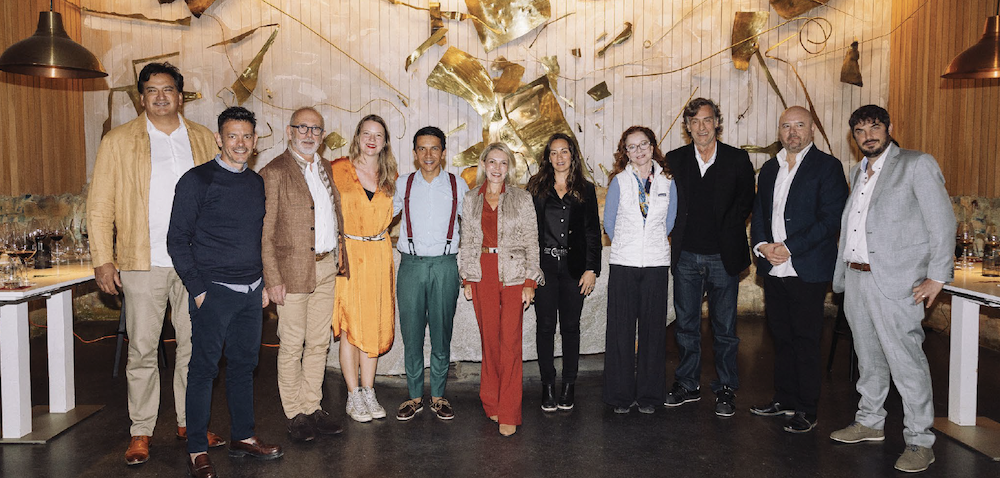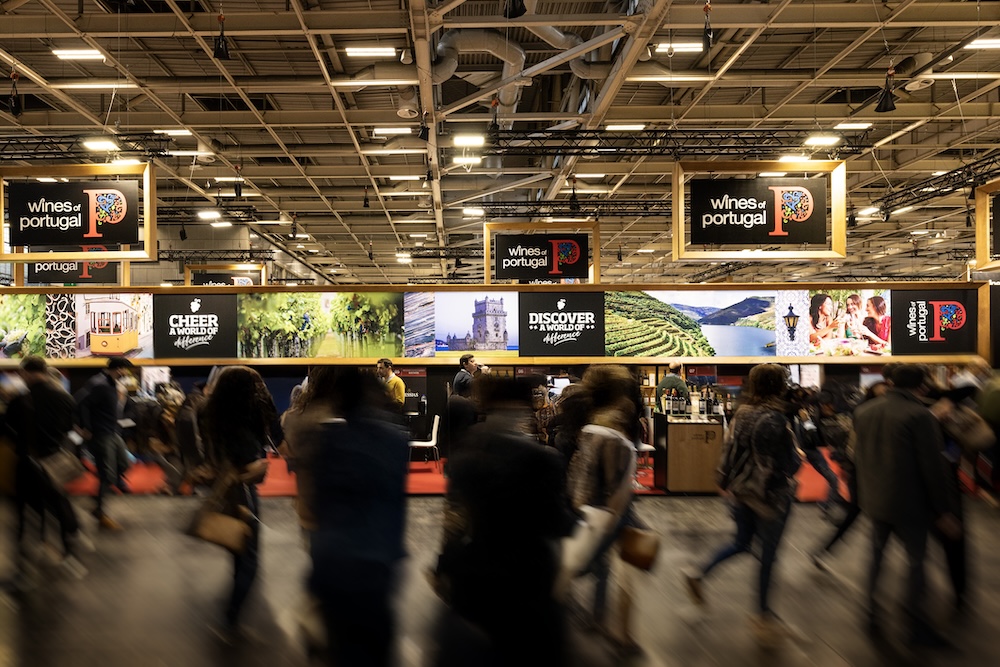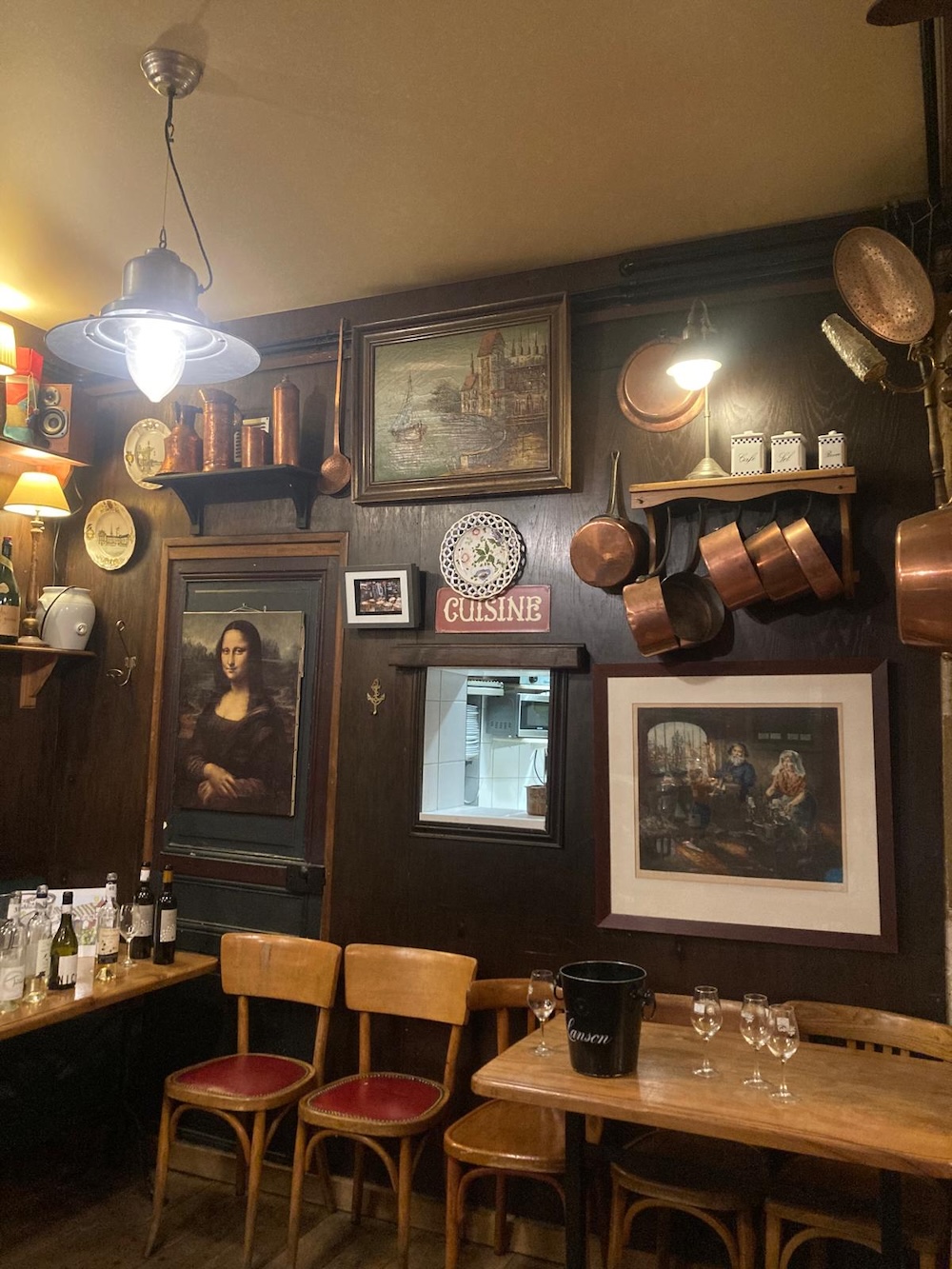
Discovery

Discovery
By Samarie Smith-Meletiou DipWSET – Photographs: courtesy of the estates, posted on 09 December 2024
Owning a wine farm in South Africa evokes a postcard image of scenic landscapes and an idyllic lifestyle, which has enticed many holidaymakers to stay and put down roots. The trend has also drawn substantial international investment, driven by confidence in the country's long-term potential.
The South African wine industry has come under the foreign investor's radar for many reasons, of which the exceptional wine quality and vibrant tourism offerings remain the primary factors in building a reputation that regularly outshines its global competitors.
Beyond its nuanced climate and ancient soils shaping unique wines, South Africa’s competitive edge includes the lower costs for establishing vineyards, labour, and production compared to famed regions like Bordeaux or Napa. A well-educated English-speaking workforce also adds to the attraction. Its unique ability to offer the best of both worlds - combining old-world techniques born from its rich viticultural history with innovative, new-world approaches also keeps it at the forefront of the global wine scene. So, despite political and economic uncertainties, many investors view the country as ripe with long-term growth potential, embracing a patient approach that values the organic development of their investment.
Maryna Calow, Communications Manager for Wines of South Africa (WOSA), explains: "Any investment in our industry is seen as positive, as it leads to job creation, greater visibility, infrastructure development, and renewed interest in the sector."
South Africa ranks 6th in global wine exports and 8th in production volume, accounting for over 4% of the world's wine, while wine tourism contributes R7.2 billion ($412 million) to the economy, creating thousands of jobs. Despite recent production declines, wine sales reached R31.7 billion in 2022 - an increase from the previous year. These factors present a compelling case for foreign investors, with 18 million glasses of South African wine enjoyed worldwide daily - an impressive opportunity to build on and cultivate further.
At the heart of the wine enterprise Advini, listed on the stock exchange, is the Jeanjean family, who have farmed France's Languedoc region since 1870. Advini is synonymous with mindful wine industry acquisitions in France and South Africa, a company that ensures sustainability while preserving cultural and historical identity. As the third-largest wine producer in France, Advini owns properties in renowned French appellations, and 15 years ago, they expanded into South Africa's sought-after Stellenbosch terrain. But, as Naretha Ricome, Vice President AdVini South Africa, reveals, this wasn't a strategic move initially.
Ricome, a South African-born Afri-French powerhouse, manages the South African chapter from Advini's headquarters in Saint-Félix-de-Lodez, near Montpellier. Albeit based in France, she has maintained a deep connection to Stellenbosch since her student days, where her passion for wine blossomed while working part-time at the L'Avenir wine estate. Her career took her to Maison Ogier in Châteauneuf, a company owned by Advini, and brought her full circle when Advini acquired Laroche from Chablis, the previous owner of L'Avenir.
"It made sense for Advini to establish a presence in Stellenbosch, given their history of investing in esteemed appellations," Ricome explains. "I put my hand up to lead the Stellenbosch venture because I believed in the region's potential. The mandate was simple: it shouldn't cost the company money, and I had to prove it could be profitable."
They broke even in the first year; by the following year, they were profitable, and today, each brand in the Advini SA portfolio is 100% profitable, "which allows us to reinvest and expand further."
Advini's success in South Africa stems from a deep respect for brand equity and terroir. Under Ricome's leadership, the portfolio has grown to include Le Bonheur and Ken Forrester Wines (since 2016), Stellenbosch Vineyards (2018), and Kleine Zalze (2022).
"It's not about competing but complementing each other. The land and the people come first, so the autonomy of each estate must be maintained while fostering an interconnected relationship between the brands. South Africans run each estate, and this psychological ownership, or ‘ancrage’ as we say in French, anchors the identity of each brand, making the model truly sustainable."
The strategy of careful curation rather than rapid growth has proven successful. L'Avenir continues to shine with Pinotage (Provenance Pinotage 2022 and Chenin Blanc 2023 scoring 91), Ken Forrester leads in Chenin Blanc (Old Vine Reserve Chenin 2023 scoring 90 and The FMC 93 amongst others) and Kleine Zalze is recognised for its high-quality, large-scale production. Meanwhile, Le Bonheur remains a hidden gem for their guests, celebrated as Canada's top-selling white wine brand and scoring two golds in the Gilbert & Galliard tasting.
"We want to bring the world the best South Africa offers while building on its heritage."
As their latest acquisition, Kleine Zalze achieved just that, securing multiple double golds at the tasting for their Family Reserve Sauvignon Blanc 2022, FR Chenin Blanc 2022, FR Chardonnay 2023, and FR Cabernet Sauvignon 2019. To crown their success, the FR Syrah 2020 scored an impressive 95 points.
The company actively reduces its environmental impact through water conservation and recycled glass, to name a few.
"It's been proven that shipping wine from South Africa to Europe has a smaller carbon footprint than transporting it from France to Germany," Ricome notes. "We need to shift the perception that promoting South Africa abroad increases environmental costs."
Despite challenges like fluctuating exchange rates, power issues, and a weak Rand, Ricome remains optimistic as Advini's growth has significantly impacted local communities with initiatives such as the Arniston Bay Trust.
"People are your best asset. During COVID, we didn't retrench a single employee or reduce salaries. For example, L'Avenir started with 11 employees, and today, we directly employ 253 people."
She compares a sustainable legacy to the victorious Springbok rugby team: "It's about building a sustainable legacy. "The Boks need to win before the fun can start. Similarly, South Africa's wine industry has the quality, the people, and the know-how. It's about growth - taking what works and building on it."

Advini focuses on premium packaged wines, avoiding crowded, lower-end markets, while promoting South Africa's old-vine Chenin Blanc and conservation initiatives.
 Naretha Ricome, Vice President AdVini South Africa.
Naretha Ricome, Vice President AdVini South Africa.
Sustainability is a core focus for Les Grands Chais de France (GCF), one of France's largest wine and spirits producers. Founded in 1979 by Joseph Helfrich and based in Petersbach, Alsace, GCF believes that integrating sustainability across its entire production chain is essential to long-term success.
Matthias Schwunk, Executive Director of International Wines and Spirits, highlights the qualitative growth of South Africa's wine industry as a key attraction for investors.
"The transition between heritage and modernity has created diverse wine styles, and the Southern Hemisphere's harvest timing helps mitigate risks as climate change impacts grape supply worldwide."
Schwunk adds that new sales channels allow GCF to sell directly from South Africa to global customers.
"South Africa's unique wines complement GCF's portfolio, enabling us to offer a broader range. Neethlingshof, with its history of producing exceptional still wines, and Villiera, known for Cap Classique, presented ideal synergies for us as the largest producer of Crémant. We saw incredible potential," resulting in several wines scoring gold.
He points out that an under-diversified distribution network in South Africa has led to dependence on a limited number of customers or markets.
"New sales channels ensure that we can produce and ship directly from South Africa, making operations financially self-sufficient and locally independent yet fully integrated into the group's global expertise."
Since investing in South Africa in late 2022, GCF has focused heavily on training and education. The entire team, including the Managing Director, consists of local employees.
"Employees make the difference," he says, sharing the company's commitment to permanent positions. "When we took over Neethlingshof, we couldn't take on Hill & Dale's vineyards. Yet we retained the staff, viewing associated costs as an investment in the future. Our growth wouldn't have been possible without them."
Schwunk believes international investors with established distribution networks are gateways for South African wines to enter global markets, benefiting investors and opening doors for other producers.
"Given South Africa's geographic location, establishing overseas distribution channels can be capital-intensive, but GCF's existing network mitigates that. Foreign investors not only revitalise their wineries, they also support local service industries. As more South African wines reach international shelves it boosts capital inflows, fostering a more sustainable industry and economy for all."

Dirk Coetzee, winemaker at l'Avenir, a trail blazer for pinotage.

RJ Botha, cellar master at Kleine Zalze.

William Wilkinson, winemaker at Le Bonheur.
Not long ago, motorists heading to the Cape's top summer destinations turned heads as a striking wine cellar took shape at the gateway to Walker Bay, outside Hermanus. This was Benguela Cove Lagoon Wine Estate, the bold vision of English entrepreneur Penny Streeter OBE, who has since transformed it into a leading wine destination, the wines earning numerous awards.
Streeter built a lucrative business in healthcare recruitment and entered the South African wine industry when she acquired Benguela Cove.
Initially motivated by the estate's location facing the lagoon and surrounded by mountains, the growing demand for cool climate wines presented a profitable venture. She agrees South Africa's unpredictable economy can affect costs and profitability which require careful planning to succeed, as seen in the estate's restaurants, art gallery, and family entertainment offerings.
"The quality of wines produced here is exceptional and wine tourism adds a competitive edge. Globally, the wine industry is competitive, with established regions dominating the market. However, the opportunities far outweigh any challenges," Streeter explains.
Both their white and red wines impressed the tasting panel, with the Estate Sauvignon Blanc 2023 and Syrah 2022 earning 92, and the Estate Collage blend achieving a solid 91.
Her business acumen from previous ventures laid a strong foundation for managing the wine estate, spreading risk effectively.
"I was already invested in South Africa through my recruitment businesses, which made owning Benguela Cove easier, as I had the infrastructure to manage and grow the business. Leveraging my team's expertise has been crucial to controlling costs and allocating resources effectively," she explains.
Streeter firmly believes foreign investments help transform South Africa's wine industry by bringing technological advancements and contributing to economic growth needed to position South Africa as a global competitor.

Benguela Cove cellar master, Johann Fourie.

Penny Streeter OBE, owner of Benguela Cove, believes the estate’s future is secured in South Africa's cultural landscape by celebrating local heritage through art, music, food, wine, events, and community engagement.

Benguela Cove’s long term commitment includes sustainable viticulture, water conservation, renewable energy, and cultural preservation.
Tim Rudd, a UK property developer turned farmer, fell in love with South Africa through his father's business trips. Now splitting his time between the UK and South Africa, Rudd brings his passion for vineyards to Brookdale Estate in Paarl. With farming experience in Chile, Rudd saw Brookdale as the perfect canvas to create a world-class wine experience.
"Paarl is an underrated gem," he says, explaining how he designed the estate to build anticipation from arrival to the manor house. Confident in the region's potential, especially with high-end estates like Val de Vie nearby, Rudd believes a loyal clientele will naturally develop.
Vineyard plantings started from scratch, using advanced technologies like solar and wind mapping to plant the right cultivars in the most suitable locations. With a focus on field blends, Brookdale grows a range of grapes, including the lesser-known Picpoul, known for its high acidity to balance ripeness in Paarl's warm climate.
"To farm well is more cost-effective in the long run." His passion for developing talent extends to upskilling workers with pruning, driving, and snake training courses. "True sustainability means leaving a legacy by empowering people”.
Despite its challenges, Rudd believes South Africa is the most beautiful country in the world and has "turned a corner" in international perception thanks to trailblazing winemakers pioneering more refined wine styles now penetrating global markets.
"The key to South Africa's wine future is bringing in talented people and giving them space to shine."

Brookdale winemaker, Kiara Scott.
 The beautiful manor at Brookdale was designed in the spirit of South Africa’s traditional architecture, blending heritage with elegance.
The beautiful manor at Brookdale was designed in the spirit of South Africa’s traditional architecture, blending heritage with elegance.

No stone was left unturned in creating a foundation for excellent wines at Brookdale.
The Swiss Saager family's path to owning Eikendal in Stellenbosch began with trading ventures in Indonesia in 1909. The late Bruno Saager, co-founder of Substantia AG (a Swiss financial holding company established in 1958), became the majority owner of the business, initially focusing on coffee and wheat farming. When Tanzania nationalised coffee farms in 1973, and wheat farming became unprofitable by 1980, the family shifted their focus to the Cape's wine industry, influenced by Bruno's close friendship with South African businessman Dr Anton Rupert.
Ownership of Substantia AG passed to Bruno's son, Prof. Rudolf Saager, and his grandsons, Erik, Nick, and Christian. Today, Christian represents the board as Eikendal Vineyard's success takes centre stage, their sophisticated Eikendal Cabernet Sauvignon Merlot 2022 scoring 91.
"After evaluating the vine-growing potential, we acquired two farms straddling Eikendal Road in 1981 and consolidated them into Eikendal Vineyards. A replanting program and construction of a modern cellar followed," says Saager.
In 1997, Saager left his teaching career in Switzerland to join the family business, applying his experience from owning a wine shop to the complexities of breaking into overseas wine markets.
"Consumers often buy wines they discover on holiday in countries like Italy and France with larger marketing budgets. Chile, for example, benefits from government subsidies. Competing without South African government support is tough," Saager explains.
Despite the hurdles, the Saagers have remained committed to Eikendal for over 43 years, operating without a traditional CEO structure and opting for a flat team hierarchy.
"The team, including the winemaker, viticulturist, finance department, lodge manager, myself as the board representative, middle management, and workers, functions as a close-knit family, built on trust and a common goal."
Eikendal has become an increasingly important part of the company's portfolio, "and we are in it for the long haul," says Saager, who visits Eikendal every three months. A beautiful guesthouse, Eikendal Lodge, became a successful second line of income, adding to the wine tourism offering in the area.
"We strive to break even and sometimes achieve that, but we subsidise the business through other ventures. Still, we have made great progress. Naming wines after my niece Janina and my daughter Nadine shows we're here to stay."

Ekendal winemaker since 2022, Aldert Nieuwoudt.

Eikendal blends into the natural environment, nestled beneath old trees with a majestic mountain backdrop.
Markus Rahmann, owner of Asara Wine Estate and Hotel, brought his Namibian-German roots and global business acumen to South Africa, evident in the estate's offerings, from the hotel interior to restaurants and art. Having lived in China for 15 years, where he built his interior lighting factory, Rahmann felt drawn back to the African continent and first visited South Africa in 1998.
"I came to South Africa when everyone else seemed to be leaving, and looking back, it was the right decision for my family's lifestyle," Rahmann reflects. "There were no roads, no trees, and no buildings. I replanted 140 hectares in two years - today, I'd consider myself mad for doing that."
His love for space and refinement led to the restoration of 180 hectares and a newly-built cellar, where they embrace an old-world approach to their winemaking style.
Rahmann's dedication is palpable in the estate's offerings, which have expanded Asara into a diverse wine tourism destination, including restaurants, lounges, bars, a bakery, and even in-house chocolate manufacturing, creating an immersive and high-end guest experience.

Asara Wine Estate and Hotel, owned by the Rahmann family, has established itself as a prime tourist destination in Stellenbosch.
Aaldering Vineyards & Wines in Devon Valley, Stellenbosch, came to life through the vision of Gert-Jan Posthuma's in-laws, Marianne & Fons Aaldering, driven by their passion for wine and fine dining. After searching globally for the ideal vineyard, they discovered it in South Africa in 2004, making all investments through their Dutch holding company.
"It had to be a small, boutique, and manageable vineyard with high-quality soils," Posthuma, the International Sales and Marketing manager explains," and Aaldering Vineyards & Wines had everything to become a success," as seen with both the Aaldering Pinotage Blanc de Noir 2024 and Aaldering Lady M 2022 scoring gold.
After proving the potential of grape farming, they built a winery, a 5-star guesthouse, a winemaker's cottage, a bottle maturation cellar for 180,000 bottles, and a manager's cottage.
"The quality of life here is outstanding," says Posthuma. The combination of wine tourism and exceptional hospitality is unique and hard to match anywhere else."

Marianne & Fons Aaldering (here with Gert-Jan Posthuma and Jacqueline Aaldering) transformed their hobby at Aaldering Vineyards into a serious venture, producing fines wines rarely found at such value in Europe.
The synergy between foreign investment and South African expertise helps create a robust, competitive wine industry fuelled by the country's rich heritage, diverse terroir, and rising global profile. From major corporations to small family-owned estates, these investments drive sustainability, elevating Brand South Africa on the world stage. As international investors increasingly recognise the wine industry's long-term potential, South Africa's standing in the global wine market is not just secure - it's becoming indispensable.

Discovery

Discovery

Discovery